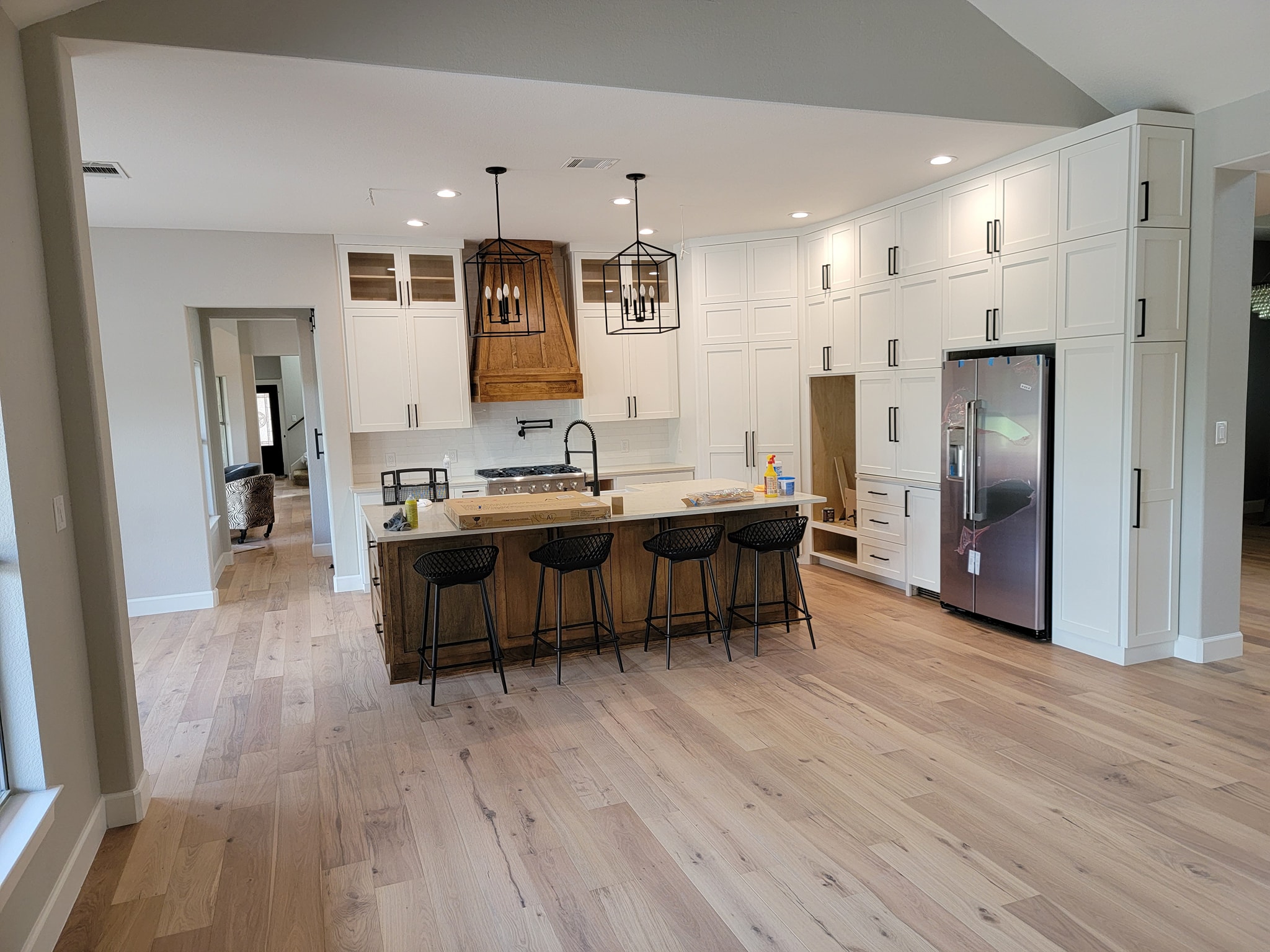A do-it-yourself approach is a great way to tackle many home remodeling projects. Thanks to great access to good information and the availability of new building materials that are DIY friendly, homeowners can successfully take on many heavy, complex projects, including floor installation, wall removal, and window replacement. DIY remodeling not only saves you money, but it can be highly rewarding as you enjoy the successful results of your own labor.
But does the DIY approach extend to serving as your own General Contractor, one of the most complex home remodeling tasks of all? Managing a large building or remodeling project can involve interviewing, negotiating contracts, and supervising the work of many subcontractors, so it helps to know all aspects of the job before you plunge ahead with this task. We have listed the Advantages and Disadvantages of playing the role of your own General Contractor.
Advantages of being your own General Contractor
Saves Money
The prospect of saving money on home remodeling is the chief motivator behind all DIY activity. When you take on specific DIY tasks, you can sometimes save an impressive amount of money, although in other cases the savings are modest. For example, by installing flooring yourself you could save thousands of dollars. However, if your floors just need to be sanded you will likely only save a few hundred dollars. This can be the same with painting walls versus painting cabinetry.
But the amount of money you can save by acting as your own General Contractor can be nothing short of overwhelming. Figuring that an average 20% of contractor’s commission for a major room addition can cost around $200,000, you will save $40,000 by acting as your own General Contractor. That money saved can be applied to higher-end materials on your home, additional remodels, repairs, or can even be applied to college expenses or vacations.
Better Control
No matter how much the General Contractor promised to do to execute your wishes, you will always lose some degree of control when you hire a General Contractor. Even in the best contractor-client relationship, some communication is always lost in translation, and it is important to remember that the contractor’s unstated goal is to maximize his own profits. By acting as your own General Contractor, you have total control over every aspect of the project, from start to finish.
Establish an Important Contact List
By acting as your own General Contractor, you will be building up a contact list of names and contact information of companies and individuals who can help you later on with other projects, such as installing flooring or windows, painting, hanging drywall, or landscaping. Once a homeowner has served as a General Contractor for any major remodeling project, they rarely need to search for pros to complete similar projects in the future. And, having established relationships with a group of subcontractors can lead you to additional references when you do need to search for other professionals. Your drywall contractor may know a good house painter.
Disadvantages of Being Your Own General Contractor
There are also some very notable difficulties in taking on the duties of the General Contractor for a major project. The problems can be serious enough that some homeowners vow never again to tackle such work by themselves after trying to manage it all without a General Contractor.
Lack of Experience
It only looks like we do nothing more than schedule the tradespeople. Yet, even if that were true, our experience at scheduling and supervising workers would be invaluable. We have a wealth of experience that is often hard-won. Instead of starting from scratch, you can buy into years or decades of experience for the cost of the contractor’s commission.
A General Contractor who has an extensive contact list of masonry pros, carpenters, electricians, plumbers, HVAC contractors, landscapers, and house painters is worth more than you can imagine. And professional relationships being what they are, you may find it much harder (and sometimes more expensive) to hire the subcontractors who readily work for established General Contractors.
The General Contractor may also have sources for economical building materials and appliances that are not available to you. Disposal of demolition materials is also typically handled by the General Contractor, which you will need to arrange yourself if you tackle the General Contractor role yourself.
You Don’t Have a Network of Connections
With experience comes professional connections. Seasoned contractors operate in a social and professional network from which you are excluded. An experienced, well-regarded General Contractor can often speed processes that can stymie ordinary homeowners.
If you go to the permit office as a homeowner, for example, you may find that no one wants to help you immediately, or that your plans are scrutinized intently. An established contractor visiting the same office may find the office doors flung open instantly. Building officials and General Contractors speak the same language, they might see each other several times a month, and many have established very friendly relationships. With a history of goodwill, a General Contractor may enjoy concessions and perks from the building inspection office that homeowners do not receive.
Good subcontractors also tend to give preference to General Contractors with whom they have established relationships. You may find that the electricians or plumbers willing to bid on your self-managed job are second-tier pros who are not trusted by the established General Contractors.
Contracting Is Stressful
Large home improvement projects are arduous and can place an enormous strain on family and relationships. One benefit of paying the commission to the General Contractor is that you are insulated from some of the most unpleasant aspects of home remodeling. Families and couples tend to be happier when they can gain some separation from protracted jobs, such as building a room addition.
Another source of added stress is the challenge of managing all the individual subcontractors yourself. It is no easy feat to confront a building-trade professional with quality concerns or scheduling arguments, and one advantage of working with a General Contractor is that they will handle any necessary confrontations with all the subcontractors.
Time Management Is More Difficult
Any project, no matter how large or small, can become nerve-wracking the minute you impose a time constraint on it. If you are remodeling a second kitchen located in the basement or a guest bedroom, you may have lots of time to slowly pick away at the work. But if you are remodeling your only kitchen, time is of the essence—the project must be done as fast as possible. Every day that your kitchen is out of order means another restaurant meal or frozen dinner prepared in the microwave.
Similarly, remodeling the only bathroom in your home means you will need to complete the work very quickly, which can be hard when you are performing the General Contractors’ duties yourself. It is not uncommon for a major project that can be completed by an experienced General Contractor in only a few weeks to extend into many months when a homeowner tries to manage the project.
It is in your best interest to tightly schedule your remodel so that it takes as little time as possible, but a General Contractor is even more motivated to get the job done quickly. The more time spent on your job means less time spent on other money-making projects. General Contractors need to keep their job queue moving not only to make money for themselves but also to pay their subcontractors.
The Bottom Line
Serving as your own General Contractor for a major remodeling or building project can potentially save you tens of thousands of dollars. But this savings comes with a notable cost in terms of stress, time management, and perhaps even the quality of the work. Do not undertake this role unless you are confident in your abilities and have carefully weighed the pros and cons.


